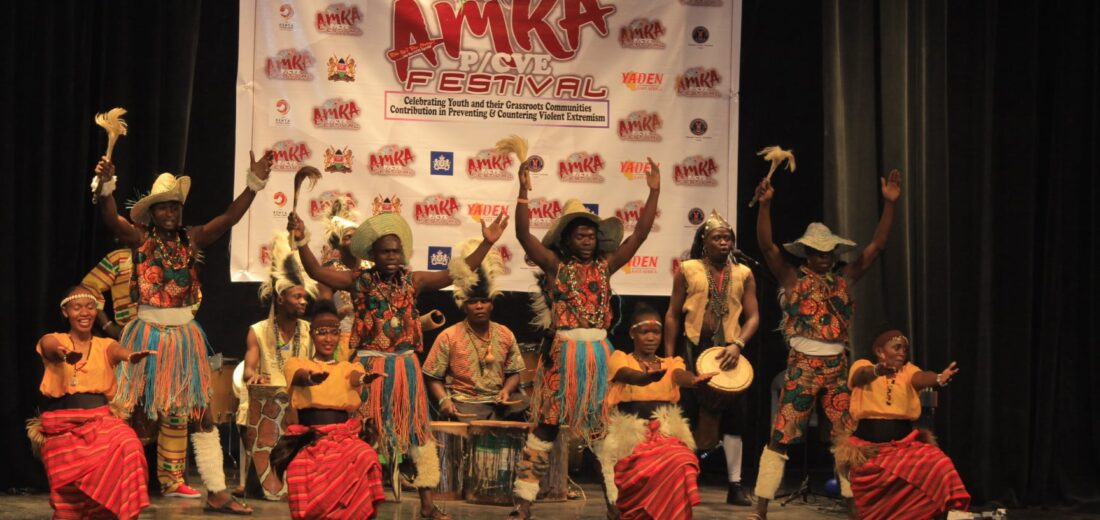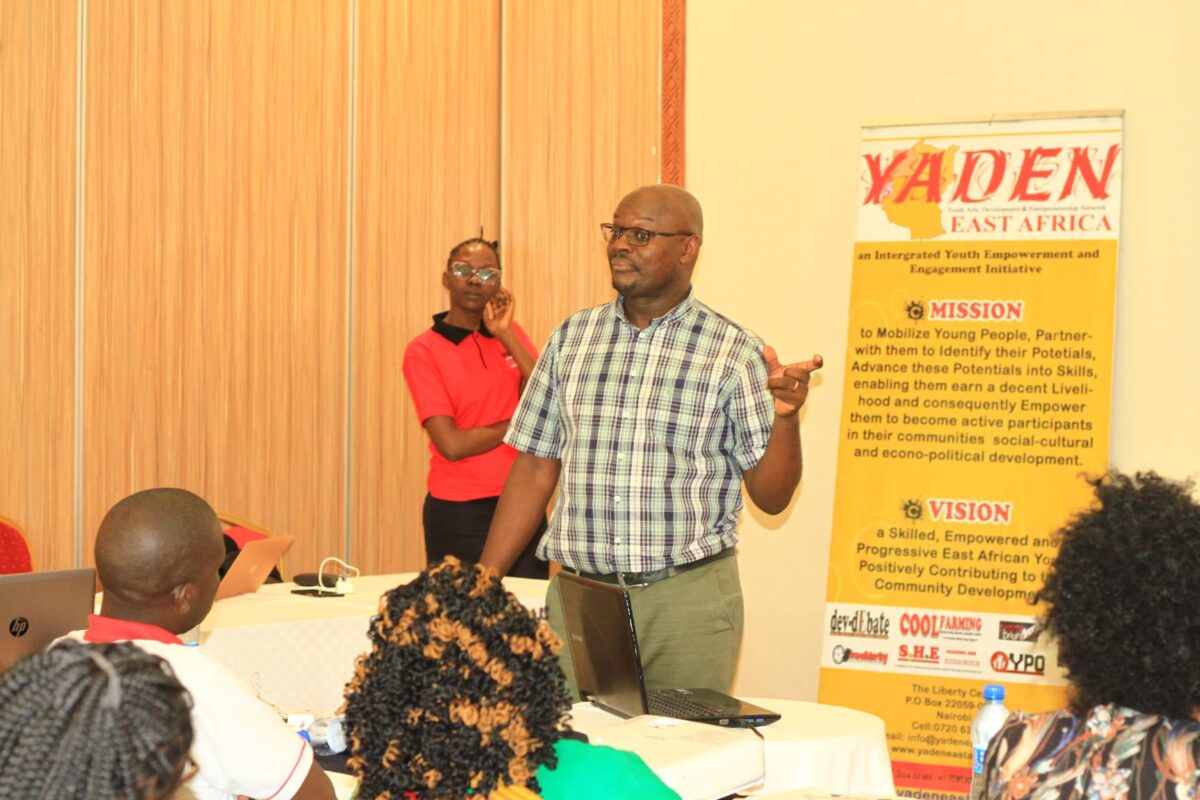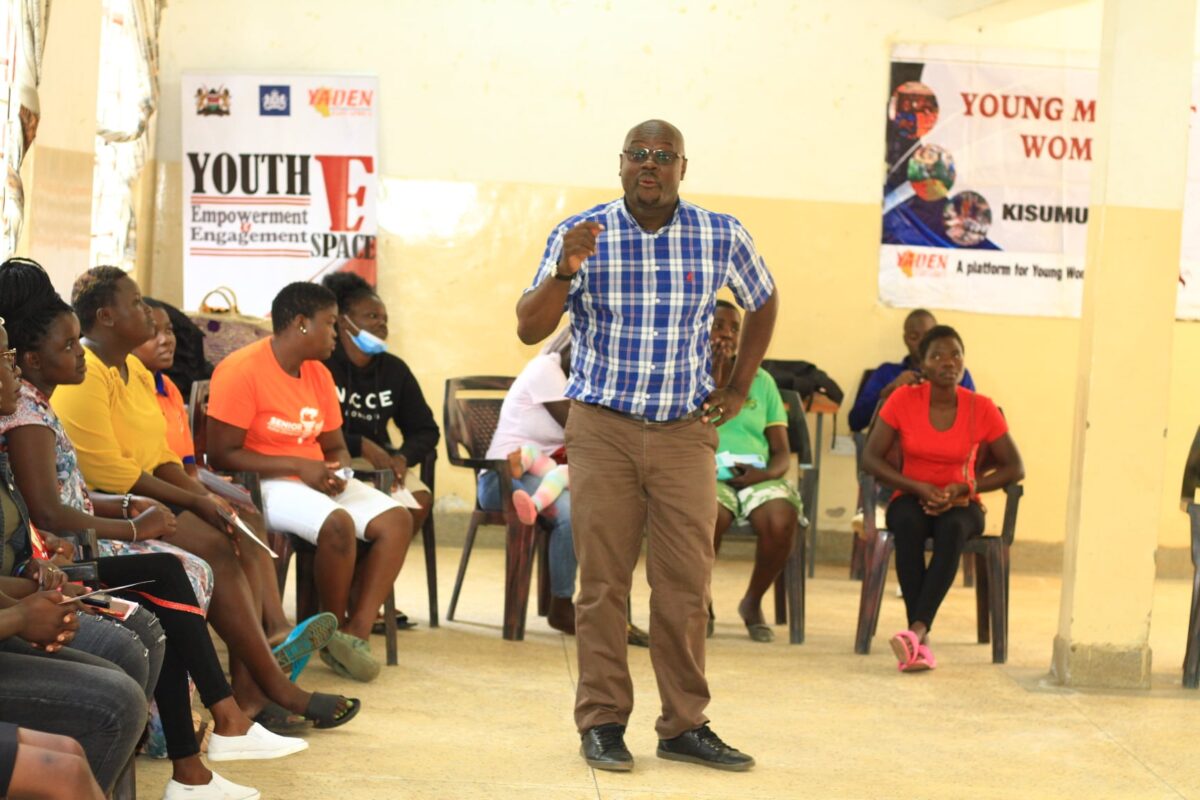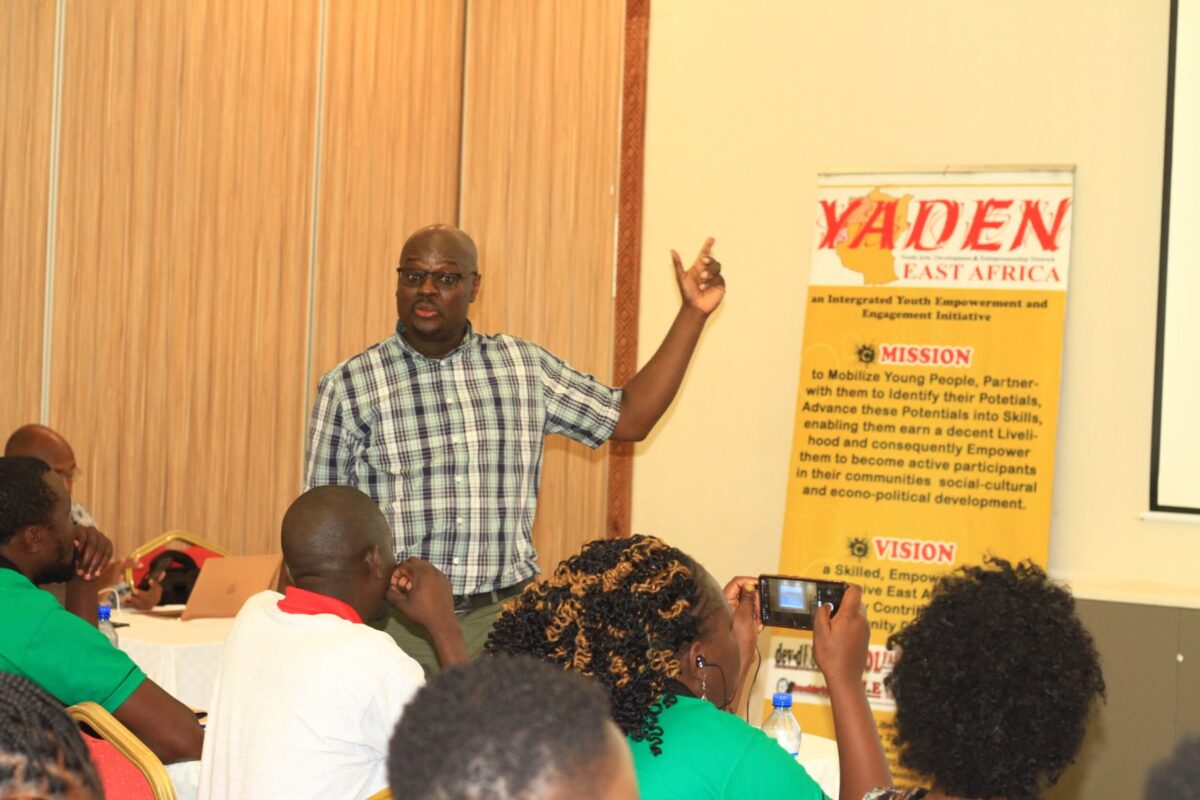
‘Art is an Enabler of Development’
Samuel Gathii is the founder of YADEN East Africa and currently serves as its Executive Director. It is through this platform that he empowers youth to realize their full potential. The skills he imparts to them assist in not only improving their lives but also transforming their entire communities.
Samuel Gathii is a modern-day legend. Sami, as he is fondly known, is a name synonymous with transformative development in different communities across East Africa. He is a researcher and a strategist in matters of development, especially in the promotion of sustainable development of grassroots communities. He is also an artist and a strong advocate of problem-solving through creativity and innovation.
He has a Bachelor of Arts in Intercultural Theatre and Education from the Utrecht School of Arts (HKU). Additionally, he studied Theatre Development at the University of East Anglia, Norwich. As a passionate proponent of art, he chose Art and Development for his Master’s Degree and wrote a thesis that highlighted art as a mechanism for development.
In 1997, at 16 years of age, Sami was already performing in theatre. Together with five other young artists, they formed a performing arts organization called Africa Living Generation Arts Production-Kenya—ALGAP-Kenya. They used their skills to create alternative performances that addressed relevant issues by combining capacity building that promoted talent with skills. Through, and with ALGAP, he was able to work with civil society organizations, corporates, and the government to expand employment opportunities for young people and artists. It is because of the work he did there that he got the opportunity to study for his degree course in the Netherlands where he studied Intercultural Art and Education.
Catalyst for Transformation
‘What is art? Art is repetitive reflection. When people compose a song to talk about their problems and their solutions, they reflect on themselves. When people paint something, they are giving their history,’ he passionately states. This statement affirms his conviction of art as a strong anchor on which development interventions may be pegged.
As a trained, practising and promoting artist, he believes art can be applied in different fields since it reflects a person’s essence. He believes that if you want to understand people, you should listen to their songs and stories; watch their drama and how they express themselves artistically. Therefore, he advises, if one wants to work with communities on development, ‘there’s no better starting point than art.’ Since art and culture are reflections of people, it becomes a natural way to engage and work with communities.
Although development is technical in its application, he emphasizes its emotive nature. According to him, development is intertwined with people’s beliefs and mindsets. He explains that while solving issues such as providing water for communities, there is a need to uphold their human dignity and have their identity correctly reflected. The development of their country must be in tandem with their culture and beliefs. He notes that attitudes are linked to people’s identities. Therefore, the most efficient way to change people’s attitudes is through art. If people are convinced of something, then they see a play that is emotive and moving, and then it’s easy for them to gradually change their attitudes. He says one cannot separate art from communities but you can learn about communities through their art.
YADEN
ALGAP-Kenya later paved the way for the inception of a theatre group called the Youth Talent Advancement Program (Y-TAP), in 2003. Six years later, with lots of interest directed at Y-TAP by development partners, YADEN East Africa came into being.
YADEN East Africa is a platform for grassroots young people with ideas that they can incubate. It exists to bring young people together, arrange them in thematic orders, and have them take part in solving the different challenges in their contexts. It achieves this by helping them to identify their potential and transforming this into useful skills. It is therefore an appropriate platform for these young people’s potential to be exponential. The objective is to accelerate their progress through training, skill enhancement, links, partnerships, and networking. This will enable them to not only grow individually but also serve as agents of transformation in their respective localities.
This is well illustrated in Sami’s reflection. ‘Many years down the line, one of the biggest contributions of YADEN is that it has created a lot of sustainable structures and systems at the grassroots. Some young people we met as individuals have moved forward to build very huge organizations in their communities.’ YADEN does not implement programs but supports young people to do theirs for they are creative and innovative in solving the issues ailing their communities like violent extremism, gender-based violence, governance and many others.
When I ask what motivates him, he responds with a confident smile, ‘For me, it’s about passion. Stubbornly, I do what I like to do and I do what I think is right. Just seeing someone walk into a room for the first workshop, naïve, lost, at a crossroads. Then, five or six years later, they have blossomed, are growing, have opinions, and have rallied a lot of people around them. For me, that’s what motivates me and it’s also a lot of fun. It’s not only about giving, I learn a lot too. Everyone looks at me as a very intelligent person. I always tell them it’s because I am privileged to learn from people in Bujumbura, Bagamoyo, Nairobi, Kisumu, Kampala, and many other areas. When I pick up a call from a young person and I hear an idea, I know my role is just to shape it.’
The young people who have been moulded by YADEN, different supporters (resources, networks and partnerships) and the transformed communities are the biggest inspirations and anchors in terms of who has guided and supported Sami to reach where he is.
Through his role as steward of YADEN, he has delivered on projects, programs and assignments. Thousands of young people across the East African region who can attribute their improved living conditions to them are proof of this transformation.
He yearns for the day when art will be accepted as a methodology and mainstreamed in all aspects of sustainable development. He has been at the forefront of not only advocating for this but also practising it.
‘I long for the day when the arts will be accepted not only as a subsidiary to development but as a bona fide enabler of development. For example, when I’m doing monitoring and evaluation, I do it through the arts. When I’m doing research, I do it through the arts as a methodology. When I am solving a problem, I apply the tool of art. There’s a lot of change taking place in how people view art,’ he elaborates.

Leave a Reply